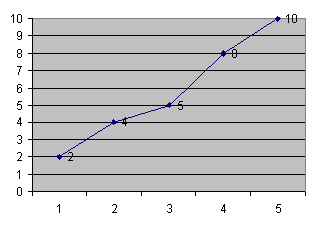| ENG RUS | Timus Online Judge |
1138. Integer PercentageTime limit: 1.0 second Memory limit: 64 MB Applying for a new job, programmer N. Smart required that his new salary (in rubles, positive integer) would be greater than his previous salary by integer percentage. What could be the highest possible number of previous jobs for mister Smart, if his latest salary did not exceed n rubles and his first salary was exactly s rubles? Example. Let n = 10, s = 2, then m = 5. The sequence 2, 4 (+100%), 5 (+25%), 8 (+60%), 10 (+25%) is the longest (although not unique) sequence that satisfies to the problem statement. Salary increase percentage is written inside the brackets.  InputTwo integers n and s separated by one or more spaces. 1 ≤ n, s ≤ 10000. OutputA single integer m — the maximum number of N. Smart’s previous jobs. Sample
Notesif n = s, the answer is 1. Problem Source: Quarterfinal, Central region of Russia, Rybinsk, October 17-18 2001 Tags: none |
